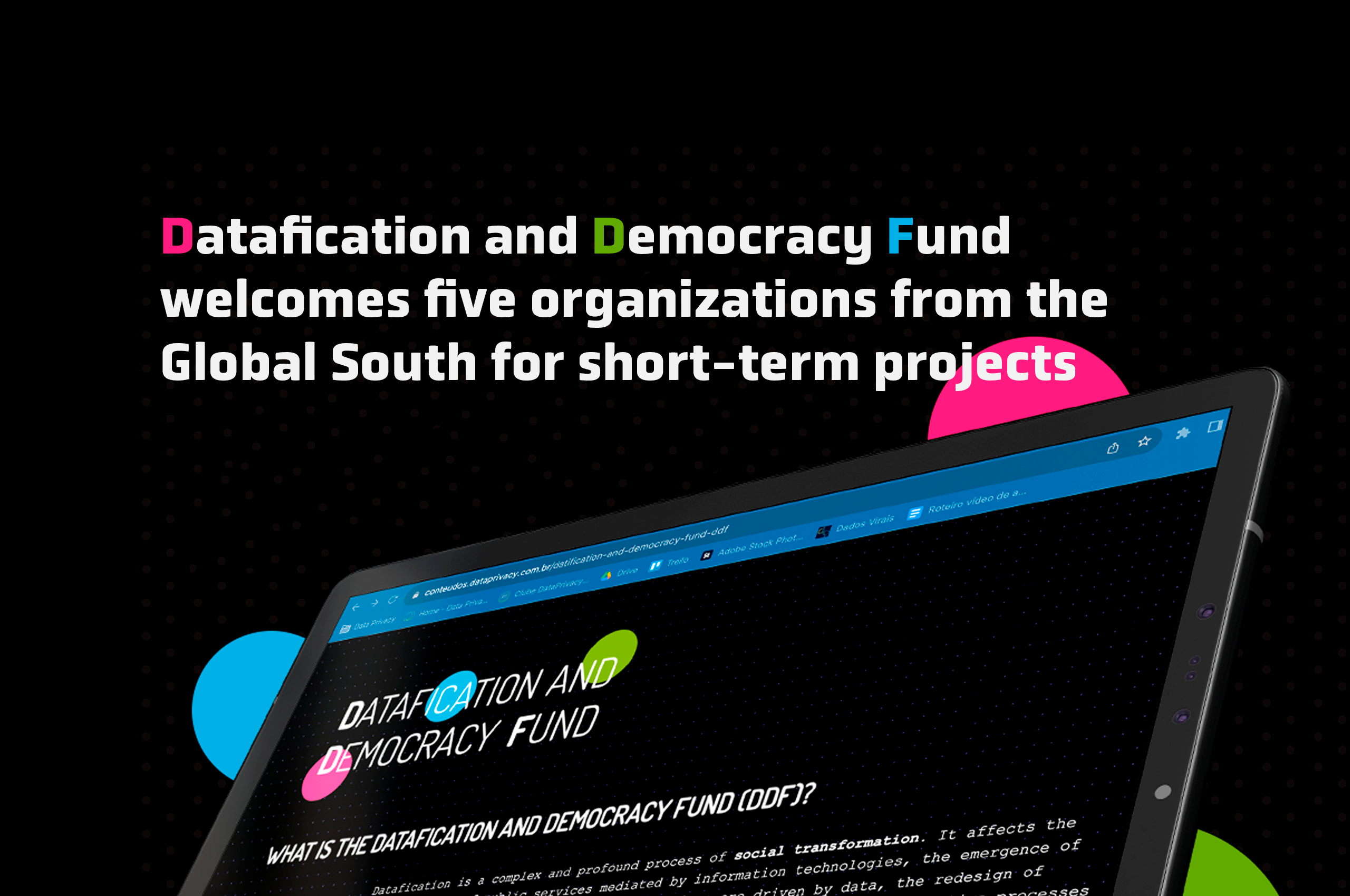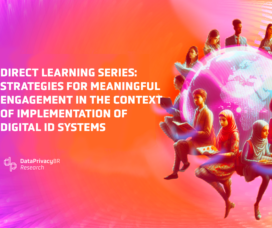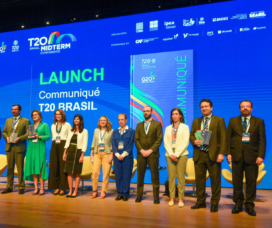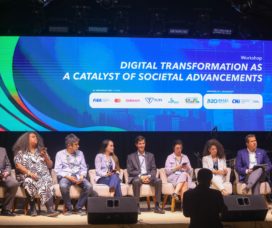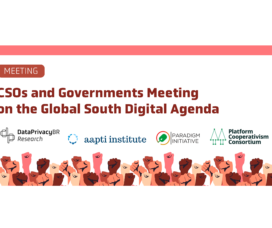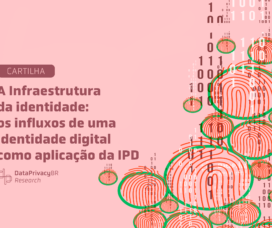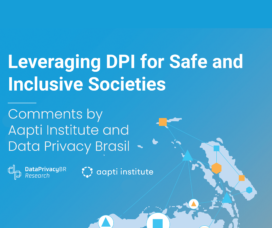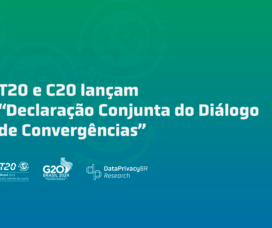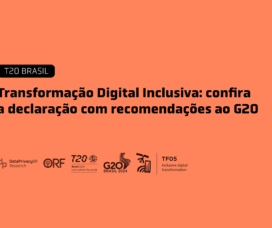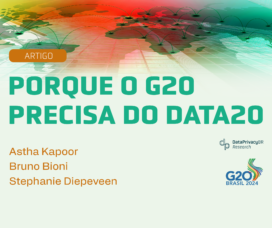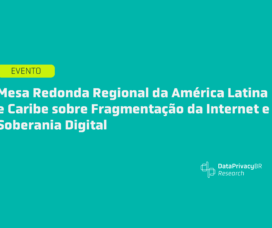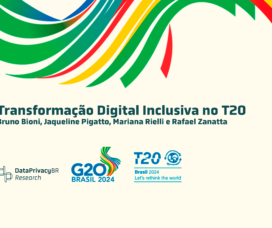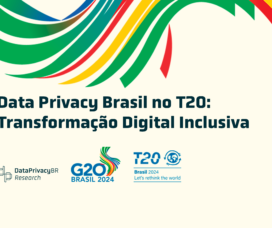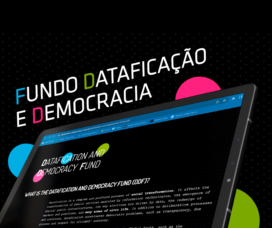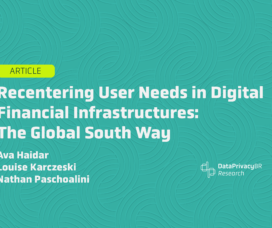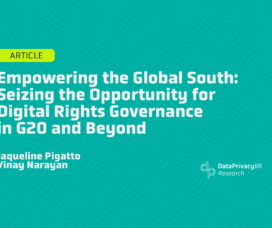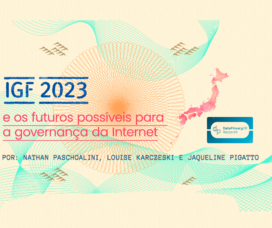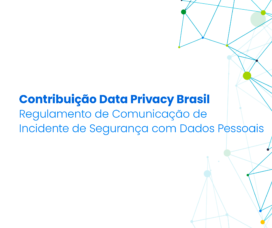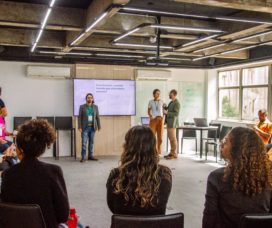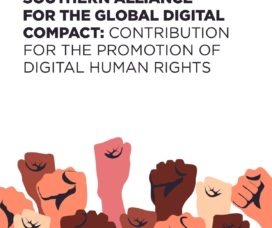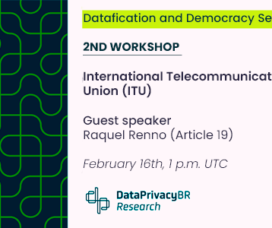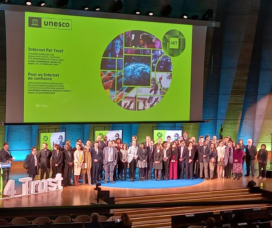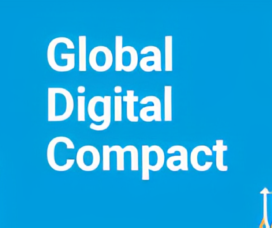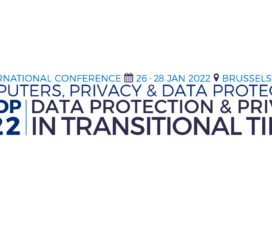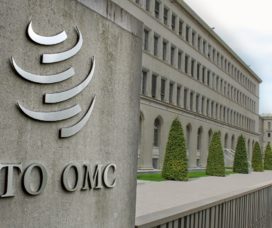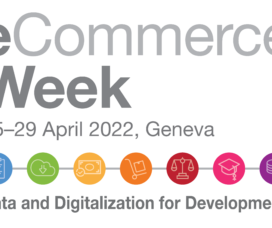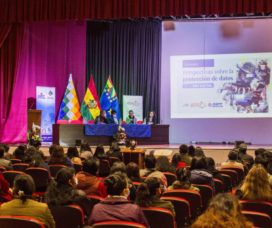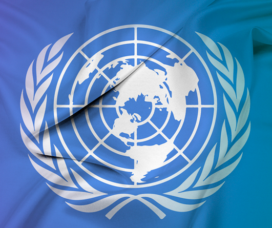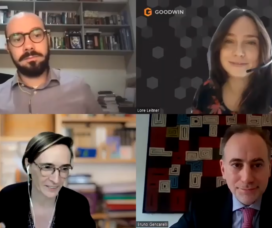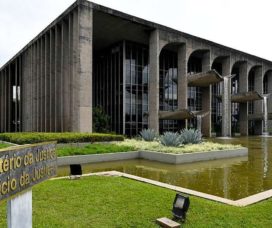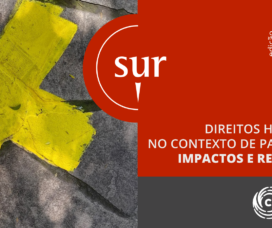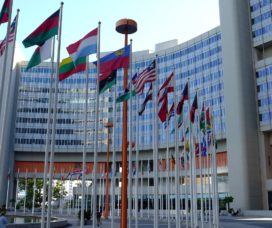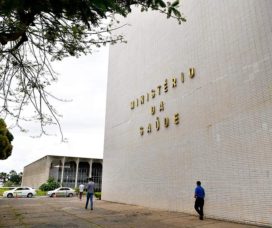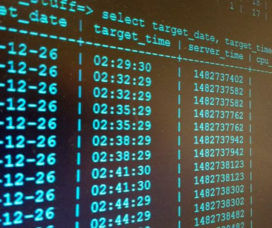Datafication and Democracy Fund welcomes five organizations from the Global South for short-term projects
The Datafication and Democracy Fund Committee, composed of Data Privacy Brasil, Paradigm Initiative, and Aapti Institute, is pleased to announce the five organizations awarded funding for a short-term research project.
The Datafication and Democracy Fund Committee, composed of Data Privacy Brasil, Paradigm Initiative, and Aapti Institute, is pleased to announce the five organizations awarded funding for a short-term research project. It was a lengthy and challenging selection process, with 60 proposals received. The Fund is part of the activities of the Global South Alliance, led by the same three organizations and supported by the National Endowment for Democracy. The selected civil society entities to receive the subgrant are Like a Palm Tree (Africa), Center of Security and Citizenship Studies (LatAm), Corporación Cambio Sostenible (LatAm), Criminal Justice & Policy Accountability Project (India), and Ikigai Innovation Initiative (Africa), thus encompassing the three regions of the Global South.
All projects have strong connections to some datafication issues faced by populations in the Global South: online protection of children; facial recognition in public spaces and surveillance of minorities; biometric data analysis in immigrant populations; and data governance in elections. The projects will be conducted between April and October 2024, and we expect to publish the results and engage in their dissemination and discussion with civil society partners and other relevant stakeholders.
Like a Palm Tree expects to provide an in-depth analysis of the current state of child online protection in Nigeria and the broader Global South, highlighting key challenges and opportunities. Also, to develop actionable recommendations for improving the framework and enforcement of child online protection laws and policies in the Global South.
Ikigai aims to conduct research on the state of data governance in election processes in selected African countries, identifying institutional capacity needs. They plan to create a contextualized framework tailored to the African context, covering the best practices for data protection in election circles and addressing unique nuances and identified challenges across the continent.
The Center of Security and Citizenship Studies (CESeC) is looking to broaden the debate on datafication in the sports context and on privacy issues and (in)security that mass data collection can produce. Establishing a dialogue with organized fan groups and sports collectives for joining a national campaign to ban facial recognition, they hope to influence and cooperate with civil society organizations, fan groups, clubs, communicators, and public managers towards strengthening public debate on the adoption of biometric technologies in stadiums and the production of data on fans.
The goal of Corporación Cambio Sostenible is to analyze the impact of datafication, specifically the mandatory collection of biometric data within the framework of the Temporary Protection Statute for Venezuelan Migrants in Colombia, in relation to democratic principles, individual rights, and equity. The ultimate goal is to propose recommendations and advocacy strategies that safeguard privacy and ensure equal participation in the migration regularization process.
The project by Nikita Sonavane (CPA Project), Dr. Kerry McInerney (University of Cambridge), and Nikhil Dharmaraj (University of Cambridge) seeks to unpack the casteist roots of surveillance in India through an empirical study of datafication and data collection – mechanisms that originated in colonial rule and persist to the modern day. Thus, this project aims to explore the genealogy of digital criminal databases in India by paying particular attention to the casteist-colonial origins of datafication.
The interconnected issues of facial recognition, surveillance, biometric data, and data governance pose significant challenges to the fabric of a democratic society. Facial recognition technologies, when deployed in public spaces, raise concerns about privacy infringement and the potential for unjust surveillance, particularly impacting marginalized communities. The collection and analysis of biometric data, especially within immigrant populations, can lead to discrimination and profiling. Moreover, inadequate data governance frameworks can undermine the integrity of democratic processes, such as elections, by enabling the manipulation and exploitation of sensitive information. Addressing these challenges requires careful consideration of ethical standards, regulatory measures, and transparency to safeguard individual rights and uphold democratic principles in the digital age.
We are excited to see these projects develop and hope to contribute to the broader engagement of civil society entities from the Global South in such debates.
Veja também
-

Data Privacy Brasil contribui para formulação de evento de alto nível da Cúpula Mundial para a Sociedade da Informação
O evento, que é co-organizado pela UIT, UNESCO, PNUD, e UNCTAD, acontece em julho, e neste mês de março os stakeholders puderam enviar suas sugestões acerca do formato e do conteúdo a ser debatido, em especial à luz do processo de revisão.
-
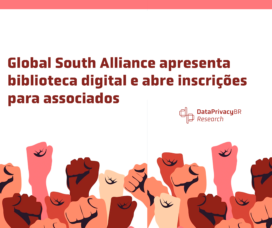
Global South Alliance apresenta biblioteca digital e abre inscrições para associados
Para fortalecer ainda mais a Aliança, a GSA convida organizações a expressarem seu interesse em ingressar na rede preenchendo o formulário de inscrição disponível até 24 de abril de 2025.
-
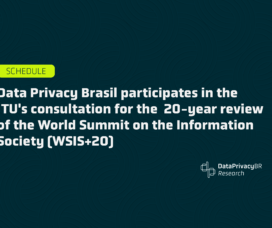
Data Privacy Brasil participates in the ITU’s consultation for the 20-year review of the World Summit on the Information Society (WSIS+20)
The 20-year review of the World Summit on the Information Society (WSIS+20) represents a major milestone for the field of digital governance in general and Internet governance in particular. In order to contribute to this process, Data Privacy Brasil submitted a response to this public consultation, which will be briefly discussed below.
-

Estão abertas as submissões de resumos para o T20 África do Sul
O Think20 South Africa convida pesquisadores de todo o mundo a contribuir para uma troca dinâmica de ideias sobre os desafios mais pertinentes da atualidade. O prazo para envio de resumos é até o dia 10 de fevereiro de 2025, às 19h (horário de Brasília).
-
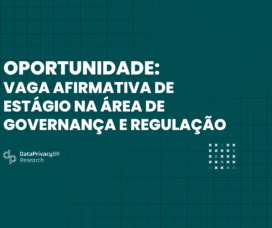
Inscrições encerradas – Vaga afirmativa de estágio na área de Governança e Regulação
A Data Privacy Brasil torna público o processo seletivo para contratação de estagiário(a) para compor o time de Governança e Regulação. Este processo seletivo destina-se exclusivamente a pessoas não-brancas.
-
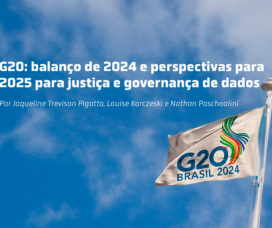
G20: balanço de 2024 e perspectivas para 2025 para justiça e governança de dados
Em 2024 a Data Privacy Brasil assumiu um novo e empolgante desafio: participar do ecossistema do G20, durante a presidência brasileira, através do grupo de engajamento oficial para think tanks, o Think 20 (T20). Confira o texto para saber mais sobre a atuação da Data no G20.
-

Exploring Opportunities in the Digital Economy and AI at the G20
The task force 5 of T20 Brasil has engaged several international think tanks to provide ideas and policy proposals on crucial areas of technological development, such as AI and Digital Public Infrastructures. This includes encouraging G20 nations to adopt policies that protect individual rights while fostering innovation.
-
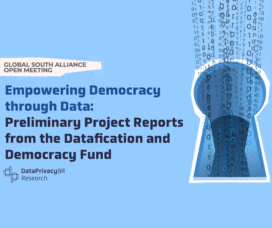
Empowering Democracy through Data: preliminary project reports from the DDF
The Global South Alliance wil host its next open meeting on October 22, 2024, where grantees from the first cohort of the Datafication and Democracy Fund (DDF) will present their impactful research.
Veja Também
DataPrivacyBr Research | Conteúdo sob licenciamento CC BY-SA 4.0

